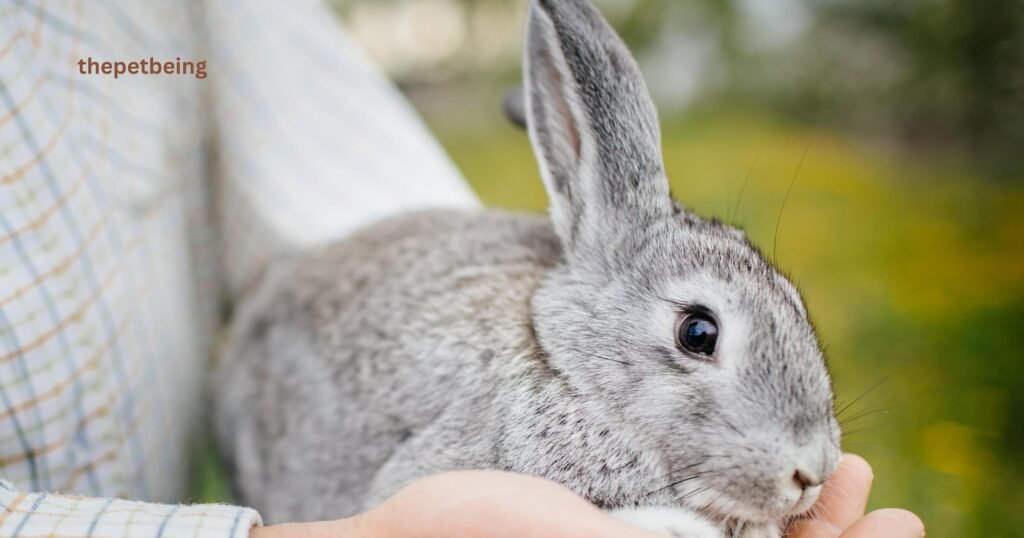As a pet owner, knowing how long pets will live is essential for making the necessary preparations and having realistic expectations.
Rabbits can make excellent pets that bring joy and fun into our lives. With the proper care, a pet rabbit can live for a long time, even up to 10-12 years.
In particular, rabbits have one of the shorter lifespans of any household pet, so it’s good to know what you can expect when bringing a new rabbit home from the pet store or adoption center.
Rabbits are cute and cuddly, making them a popular pet for singles, couples, and families.
Not only are they fun to snuggle up with in their cute little bunny masks, but they also make great additions to your home, requiring minimal effort or space while bringing lots of joy.
Lifespan of Rabbits

1. Rabbit Lifespan in General
- Rabbits live for about 10 years, sometimes more.
- This depends on type and care. Some rabbits may live only 5 years, others can reach 15 years. Reasonable care means a clean home, proper food, and loving attention.
- Also, it is vital to protect them from heat and cold.
- Regular vet visits keep them healthy, too.
- Long life for a rabbit is not just about the number of years but also about a happy, healthy life.
- Knowing this helps you care for your pet rabbit and give it a long, joyful life.
2. Common Rabbit Breeds and Lifespan
- There are many kinds of rabbits.
- Some live longer than others.
- For example, the Dutch rabbit lives for about 5 to 8 years.
- The English Lop can live for 5 to 7 years.
- The Lionhead rabbit can live up to 10 years if cared for well.
- The Mini Rex rabbit has a lifespan of 7 to 10 years.
- Each breed has different needs.
- Learning about your breed helps you take good care of your rabbit.
- This way, your rabbit can live a long and happy life.
3. Diet’s Effect on Lifespan
- A rabbit’s diet plays a significant role in how long they live.
- They need the right food to stay healthy and happy.
- Hay is essential for rabbits. It helps their teeth and digestion.
- They also need fresh veggies like carrots, spinach, and broccoli.
- Some fruits can be given as a treat, but not too much because of the sugar.
- Clean water is always needed. Also, avoid giving your rabbit human food or treats.
- This can make them sick.
- A proper diet is vital for a long rabbit life.
- Always check with a vet about the best food choices for your rabbit’s breed and age.

How Living Conditions Impact Lifespan
Just like humans, rabbits thrive in a comfortable, safe, clean environment.
The conditions in which a rabbit is kept can significantly influence its longevity and overall health.
Therefore, creating a suitable living space for your pet rabbit is as critical as providing the proper diet.
1. Space and Exercise
- Rabbits are active animals requiring plenty of room to hop about, play, and explore.
- It’s essential to provide a spacious cage or hutch and a safe and supervised play area outside of the cage.
- Regular exercise can promote good health and longevity in rabbits.
2. Cleanliness is Key
- Rabbits are unusually clean creatures, and a dirty environment can lead to illnesses, infections, or parasites, potentially reducing their lifespan.
- Regularly cleaning your rabbit’s cage, changing bedding, and maintaining overall cleanliness can help prevent such issues.
3. Temperature and Weather Conditions
- Rabbits are sensitive to heat and cold.
- Extreme temperatures or uncomfortable weather conditions can detrimentally impact a rabbit’s lifespan.
- Keeping the rabbit’s living quarters in a temperature-controlled environment, away from direct sunlight or intense cold, can contribute to their longevity.
4. Socialization and Enrichment
- Rabbits are sociable animals.
- They crave interaction and mental stimulation.
- When rabbits are isolated, they can become depressed, affecting their health and reducing their lifespan.
- Regular interaction, playtime, and mental stimulation can help create a joyful environment for your rabbit, thus indirectly contributing to its long life.
5. Proper Housing Materials
- The materials used in constructing a rabbit’s house can also impact their lifespan.
- Soft bedding, non-toxic materials, and sturdy construction provide safety and comfort.
- Unsafe materials or sharp edges can lead to injuries, stress, or discomfort, affecting the rabbit’s health and lifespan.
6. Regular Vet Visits
- Lastly, regular vet visits are crucial in a rabbit’s life. Vets can spot potential health issues in the early stages and provide necessary treatment.
- This preventive care can contribute to a rabbit’s longevity.
- Caring for a rabbit involves much more than just feeding it and giving it water.
- It requires providing a suitable living environment that promotes health and well-being.
- Understanding how living conditions impact a rabbit’s lifespan can help pet owners create a nurturing environment that allows their furry friends to live long and happy lives.

Tips for Caring for Your Rabbit Longevity
1. Provide a Balanced Diet
- One of the most important aspects of caring for your rabbit is ensuring they get a balanced diet.
- This includes providing them with good quality hay, which should make up most of their diet, and a small amount of fresh vegetables and fruits daily.
- Avoid feeding your rabbit too many treats, leading to obesity and other related health issues.
- Freshwater should always be readily available for your rabbit.
2. Prioritize Regular Exercise
- Rabbits need plenty of exercise to stay healthy and happy.
- Make sure your rabbit has enough space to move around freely.
- If your rabbit lives indoors, it’s a good idea to let it roam around a safe area of your home under supervision.
- If your bunny lives outside, ensure it has a large, secure enclosure where it can hop and play.
3. Regular Health Check-ups
- Regular vet check-ups are essential for ensuring your rabbit is healthy.
- A vet can spot early signs of illness and provide necessary treatments or preventative care.
- Rabbits can be prone to dental problems, so watch for signs of discomfort or changes in eating habits.
4. Appropriate Housing
- Your rabbit’s housing should be safe, secure, and comfortable.
- It should be large enough for your rabbit to stretch out and stand up on its hind legs.
- Ideally, it should also have a separate area for your rabbit to hide and feel secure.
- The housing should be kept clean to prevent diseases.
5. Monitor Temperature
- Temperature control is critical for rabbits as they are sensitive to hot and cold conditions.
- Your rabbit’s housing should be kept at a consistent temperature, away from direct sunlight or drafts.
6. Socialize Your Rabbit
- Rabbits are social animals and enjoy the company of their kind, so consider keeping more than one rabbit.
- Spend time with your rabbit daily and provide them with toys for mental stimulation.
7. Groom Your Rabbit Regularly
- Regular grooming is essential, especially for long-haired breeds.
- Brush your rabbit’s fur to prevent matting and help reduce the risk of hairballs.
- Check your rabbit’s nails regularly and trim them if necessary.
8. Handle with Care
- Rabbits are delicate animals and should be handled gently.
- Never lift a rabbit by its ears or the scruff of its neck.
- Instead, place one hand under its chest and the other supporting its hindquarters.
9. Provide Mental Stimulation
- Ensure your rabbit has plenty of toys and activities to prevent boredom.
- This can include chew toys, tunnels, and hideaways.
Conclusion
Rabbits can make excellent pets that bring joy and fun into our lives. With the proper care, a pet rabbit can live for a long time, even up to 10-12 years. This includes good food, room to play, regular check-ups, and lots of love and cuddles. Keeping their home clean, safe, and at just the right temperature is essential. Bunnies need friends, too, so play and cuddle with them often. Remember, the happier and healthier a rabbit is, the longer it can be part of your family. Taking good care of your bunny means a longer, happier life for them.
Knowing the lifespan of a pet rabbit can help you determine how much time and resources you should dedicate to their care. While pet rabbits can live from five to twelve years, they can easily extend their lifespans to more than twelve years with proper diet and exercise.
FAQs
How to Keep Your Rabbit Healthy?
Keeping your rabbit healthy is simple.
Give them fresh, healthy food like hay, veggies, and clean water daily.
Let them exercise freely in a safe space. Take them to the vet for regular check-ups.
Keep their home clean, at a suitable temperature, and safe.
Play with your rabbit often and offer toys for fun.
Always handle them gently.
These easy steps can help your rabbit live a long and happy life.
How to Improve Your Rabbit’s Lifespan?
Improving your rabbit’s lifespan involves several easy steps.
Feed them a balanced diet with hay, fresh vegetables, and limited treats.
Provide plenty of exercise in a safe area and regular vet check-ups. Keep their living area clean and at a comfortable temperature.
Make sure they have company and toys for mental stimulation.
Regularly groom your rabbit and always handle them gently.
These simple actions can help your rabbit live a longer and healthier life.
What is the best diet for rabbits?
The best diet for rabbits includes lots of fresh hay, a small amount of fresh vegetables each day, and a few pieces of fruit as a treat.
Hay should be the central part of their diet because it suits their teeth and digestion. They also need clean water every day.
Avoid feeding your rabbit too many treats, leading to health problems.
Can a rabbit live for 20 years?
While it’s rare, some rabbits have lived up to 20 years.
The lifespan of a pet rabbit usually ranges between 5 to 12 years.
Your rabbit can live a long and happy life with reasonable care, a healthy diet, lots of love, and regular vet visits.
Remember, every rabbit is unique, and their lifespan can vary.
What is the minimum age of a rabbit?
The minimum age of a rabbit depends on the context.
If you’re asking about adopting or buying a rabbit, it’s best to wait until they are at least eight weeks old before taking them home.
This gives them time to be with their mom, learn important rabbit behaviors, and grow strong.
Babies younger than this can have difficulty adjusting and may suffer from health problems. Always remember the welfare of the animal should be your top priority.
Is rabbit lucky for home?
Yes, many people believe that a rabbit is a symbol of luck and prosperity.
Having a rabbit in your home can bring positive vibes and happiness.
However, remember that owning a rabbit comes with responsibilities.
They need proper care and love to thrive.
Owning rabbits can be a lucky charm, but their well-being should always be a priority.
















